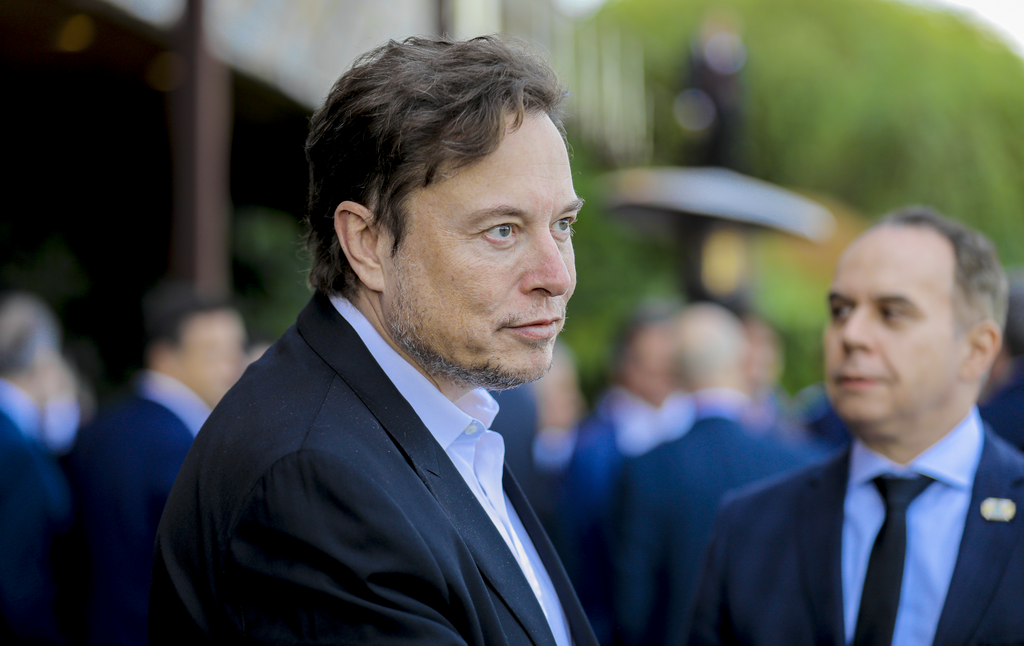A Philadelphia judge has ruled in favor of Elon Musk’s America PAC, allowing the organization to proceed with a controversial million-dollar giveaway targeting registered swing-state voters. The PAC, funded by Musk, aims to incentivize voter turnout in critical battleground regions by distributing cash prizes to voters registered in states that could decide the outcome of the upcoming election. The judge’s decision, coming after intense scrutiny and legal challenges, has sparked a national debate over whether such financial incentives are ethical—or even legal—in influencing voter participation.
The PAC’s initiative, which promises thousands of dollars in random giveaways to registered voters in swing states, has stirred concern among election integrity advocates and legal experts. Critics argue that offering cash incentives to prospective voters borders on vote-buying and sets a troubling precedent. Yet the court’s decision confirms the PAC’s legal right to continue its campaign, with proponents celebrating the move as an innovative approach to boosting voter engagement in a highly polarized political landscape.
“Elon Musk’s America PAC is breaking new ground in getting voters engaged,” said Mark Roberts, a spokesperson for the PAC. “This initiative isn’t about influencing how people vote; it’s about encouraging people to participate in the democratic process. There’s no obligation or coercion involved—just an incentive to show up.” The PAC’s statement emphasized that recipients are not asked to vote in any particular way, and are merely encouraged to participate in the electoral process.
However, opponents remain unconvinced. Various legal experts argue that the line between “encouraging participation” and outright vote-buying is a fine one. “When cash is involved, we are treading on dangerous ground,” said Dr. Sandra Mason, a professor of election law at Georgetown University. “While the court has allowed this initiative, it raises serious ethical concerns. Cash giveaways tied to voting could influence voter behavior, even if there’s no explicit directive on who to support.”
The legal dispute over Musk’s America PAC began when several voting rights groups filed a petition, urging the court to halt the giveaway program, claiming it undermines the integrity of the election process. The judge’s ruling, however, determined that the initiative does not violate election laws, as it does not explicitly tie financial incentives to any specific voting outcome or candidate. The court’s decision stressed that so long as the PAC adheres to transparency regulations and does not promote partisan agendas, the campaign is legally permissible.
Still, the ruling has fueled discussions across the political spectrum, with critics questioning the PAC’s motives. “Giving away cash in swing states isn’t just about ‘inspiring’ voter turnout,” said political analyst Rachel Greene. “This is an effort to gain favor and influence in key regions, especially considering Musk’s high-profile stance on several national issues.” Supporters, however, see it as a creative approach to enhancing democratic engagement and view the criticism as overblown.
As the election nears, Musk’s America PAC stands by its strategy, and the court’s ruling grants it free rein to proceed. Whether this incentive-based approach will impact turnout remains to be seen, but the decision marks a bold new tactic in mobilizing voters in battleground states.



 Trump Allegedly Sought Airport, Penn Station Renaming in Exchange for Hudson River Tunnel Funding
Trump Allegedly Sought Airport, Penn Station Renaming in Exchange for Hudson River Tunnel Funding  China Warns US Arms Sales to Taiwan Could Disrupt Trump’s Planned Visit
China Warns US Arms Sales to Taiwan Could Disrupt Trump’s Planned Visit  Trump Says “Very Good Talks” Underway on Russia-Ukraine War as Peace Efforts Continue
Trump Says “Very Good Talks” Underway on Russia-Ukraine War as Peace Efforts Continue  Ohio Man Indicted for Alleged Threat Against Vice President JD Vance, Faces Additional Federal Charges
Ohio Man Indicted for Alleged Threat Against Vice President JD Vance, Faces Additional Federal Charges  Trump Signs “America First Arms Transfer Strategy” to Prioritize U.S. Weapons Sales
Trump Signs “America First Arms Transfer Strategy” to Prioritize U.S. Weapons Sales  Pentagon Ends Military Education Programs With Harvard University
Pentagon Ends Military Education Programs With Harvard University  Trump Backs Nexstar–Tegna Merger Amid Shifting U.S. Media Landscape
Trump Backs Nexstar–Tegna Merger Amid Shifting U.S. Media Landscape  New York Legalizes Medical Aid in Dying for Terminally Ill Patients
New York Legalizes Medical Aid in Dying for Terminally Ill Patients  South Korea Assures U.S. on Trade Deal Commitments Amid Tariff Concerns
South Korea Assures U.S. on Trade Deal Commitments Amid Tariff Concerns  U.S.-India Trade Framework Signals Major Shift in Tariffs, Energy, and Supply Chains
U.S.-India Trade Framework Signals Major Shift in Tariffs, Energy, and Supply Chains  Trump Signs Executive Order Threatening 25% Tariffs on Countries Trading With Iran
Trump Signs Executive Order Threatening 25% Tariffs on Countries Trading With Iran  Missouri Judge Dismisses Lawsuit Challenging Starbucks’ Diversity and Inclusion Policies
Missouri Judge Dismisses Lawsuit Challenging Starbucks’ Diversity and Inclusion Policies  Japan Election 2026: Sanae Takaichi Poised for Landslide Win Despite Record Snowfall
Japan Election 2026: Sanae Takaichi Poised for Landslide Win Despite Record Snowfall  Netanyahu to Meet Trump in Washington as Iran Nuclear Talks Intensify
Netanyahu to Meet Trump in Washington as Iran Nuclear Talks Intensify  TrumpRx Website Launches to Offer Discounted Prescription Drugs for Cash-Paying Americans
TrumpRx Website Launches to Offer Discounted Prescription Drugs for Cash-Paying Americans  Trump Allows Commercial Fishing in Protected New England Waters
Trump Allows Commercial Fishing in Protected New England Waters 































